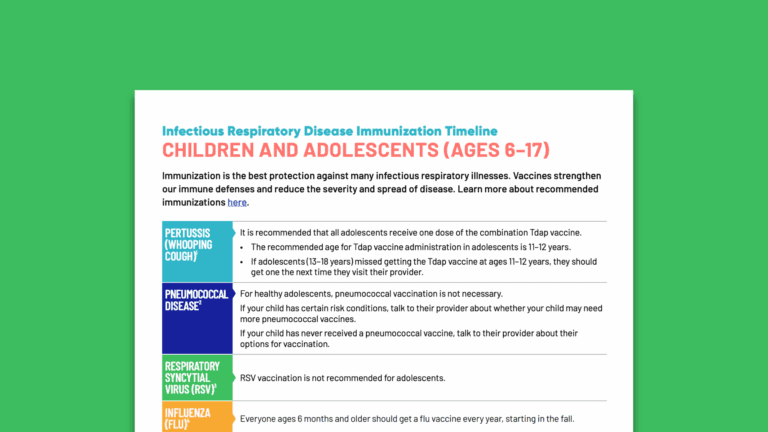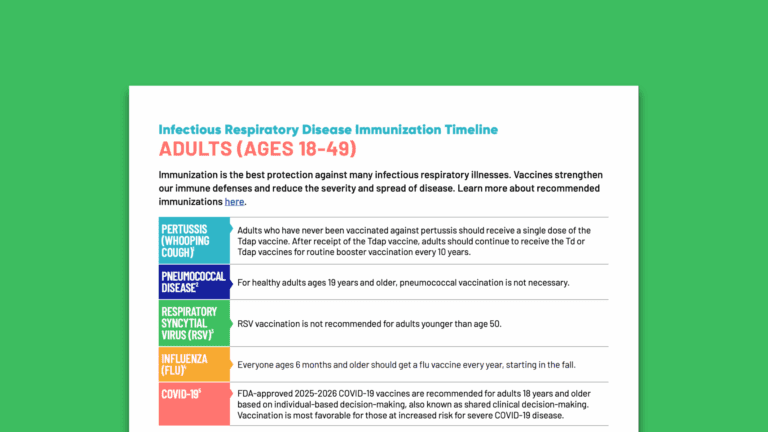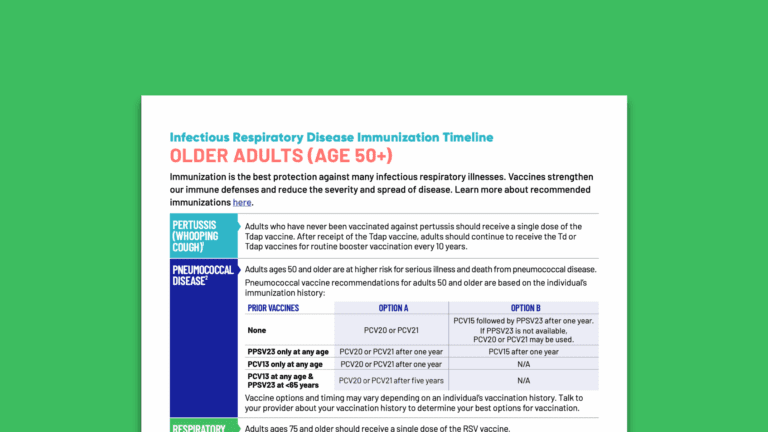Influenza (Flu)
Influenza (flu) is a significant concern, causing millions of cases and averaging hundreds of thousands of hospitalizations and tens of thousands of deaths each year in the U.S.
Flu vaccines offer a targeted defense against the most likely strains each year, which can reduce the risk of infection and potential complications.
Who needs to be protected?
Everyone is vulnerable to the flu virus, and the best way to help prevent the flu is to get vaccinated. The Centers for Disease Control and Prevention (CDC) recommends that everyone 6 months and older—with rare exceptions— receive their flu vaccine every year.
What vaccine options are available?
Several types of flu vaccines are available. Depending on age and other factors, you may be recommended to receive a particular type of flu vaccine. Approved options include inactivated injectable, recombinant injectable, live attenuated nasal spray, high-dose, and adjuvanted flu vaccines.
Some types of flu vaccines are not recommended for older adults, pregnant women, or individuals who have certain health conditions, so check with a healthcare provider to choose the right option for you.
I’m feeling lousy. How do I figure out what I have?
Visit CDC’s website to learn more about symptoms for COVID-19, flu, whooping cough, pneumococcal disease, and respiratory syncytial virus (RSV).
Symptoms of flu may include:
- Fever*/feeling feverish or chills
- Cough
- Sore throat
- Runny or stuffy nose
- Muscle or body aches
- Headaches
- Fatigue (tiredness)
*There is some research that indicates that fever in older adults may be lower than the typical 101.4 F.
If you have flu symptoms, it’s important to get tested. At home testing options are available, and many healthcare providers offer testing in their practices.
What should I do if I or a loved one has the flu?
It’s important to follow CDC guidance to help protect yourself from severe illness and to prevent spreading the disease to others.
Treatment options are also available to help prevent severe illness due to the flu. While treatments are not a substitute, nor a replacement, for vaccines, the Food and Drug Administration (FDA) has approved several treatments for people at high risk of hospitalization or death from flu. Antivirals to treat flu are most effective when started within the first 2 days after symptoms begin and may help prevent severe illness and hospitalization. For those at higher risk of developing severe illness from the flu, talk with a healthcare provider to determine the best treatment option for you.
Latest Resources

Infectious Respiratory Disease Immunization Timeline: Children and Adolescents (Ages 6-17)
Read moreThe Risks Are Real
Hear from health care providers on their stories and perspectives around the real impact of illness and the importance of prevention.

